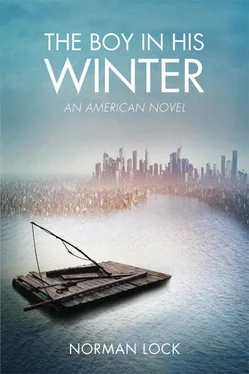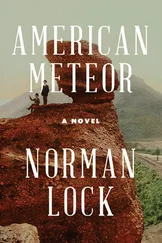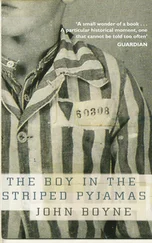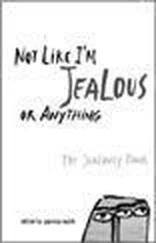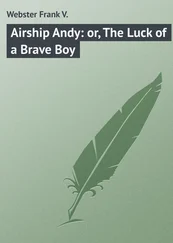Funny, how completely I’d forgotten Biloxi, its tumbled houses and broken trees. It had vanished from the map and record of my life. Memory must be a kind of radiation — its source an unidentified substance in the human brain. It weakens according to a rate of decay established by something chill and beyond all human warmth.
WE PUT INTO PANAMA CITY at the hour when the water turns pale, opalescent — a bath of cobalt grains in suspension; the air and sky seem one and the same. To breathe is to swallow the sea. At such an hour, we can believe in goodness, transcendence, and in the radiant idea of God. When, on the raft, I’d asked Jim if he believed in God, he said he feared Him. I thought he meant the terror I felt toward my father. But no, that wasn’t it. He feared He did not exist. At the time, I wondered how so deep a thought could have come from the brain of a slave. But who has more reason to be appalled by God’s absence than a slave?
Am I afraid?
I’m afraid to think about it — now that I am eighty-five and failing.
James and I walked from the St. Andrew Bay marina into Panama City. We left the brothers to wrangle over money and Edmund’s refusal to moderate his drinking. Edgar worried that an instant of drunken uproar would bring the police. His elaborate theater of normality could be undone by a bottle hurled through the windscreen of a nearby boat or a volley of obscenity aimed at a woman on the dock. A pretty girl dressed in three lilac triangles had already caught his brother’s eye while she walked her Pekinese past the cockpit. Edmund’s sullen boozing seemed to increase with every mile. Two days earlier, he’d set fire to a saloon chair after falling asleep lipping a cigarette. Fortunately, we’d been out of sight of land, although the black smoke could have brought a Coast Guard cutter down on us. James was nervous — this man who was the embodiment of calm. Whether the cause was the impending reunion or Edmund’s mutiny, I couldn’t decide. Sophie and her mother lived in a low-income apartment house called Edgewater Garden, and we were expected there for dinner. But first, James insisted I get my hair cut.
“You look like hell, Mr. Albert,” he said, ruffling my hair affectionately.
I never liked to be touched — especially in those days when the only person who had ever laid a hand on me was Pap, with force enough to smart. Anybody else but James would have felt my own hand’s angry reflex. But I’d sensed in his touch only kindness and so let it pass. My hair really must have looked a mess: uncut, unkempt, unbrushed, and clean only because of the showers I took twice a day aboard the Psyched. I was learning to adore showers, sheets, and contrivances like a machine that washed the dirty clothes. The twenty-first century is a vast improvement over the nineteenth, I thought; and when James admitted he’d never heard of castor oil, I was converted to modernity.
He led me into a “colored” barbershop. There was no more Jim Crow — not even in Mississippi — but the color bar had yet to fall where men went for a haircut and a shave. Segregated by reason of the intimacy of human hair and whiskers (abhorrent to some), a barbershop was a kind of private club where you could get whiskey, news, or even place a bet. I’d never been inside one and was intoxicated by the smell of shaving soap, wintergreen, sweet clipper oil, and eau de cologne, which a barber — a smart-looking gent with a thin mustache — rubbed into the crinkled hair of a man beside me. I sank luxuriously inside my blue-striped bib while my barber — bald and asthmatic — sought out James’s eyes in the mirror for his tonsorial instructions. And then while he pumped a pedal near the floor, I levitated!
“Cut it all the hell off,” said James, “and send the cooties to the museum of natural science.”
The barber laughed and turned the clippers on. They growled once, then buzzed into life. He ran them deftly through my hair. I watched it fall, in heavy lanks of dirty blond. When he’d finished cutting and powdering my neck with talc, he swept “my glory” down a hole.
“Where’s it go?” I asked, indicating with my itching nose the hole, like a trapdoor in the magic show I had seen with Tom Sawyer when we sneaked aboard the White Cloud the year before she sank at St. Louis.
“I sell it to the ‘wig man,’” he said, and with a flourish, he twitched off my bib, whisked the cut hair from face and neck, stepped on the pedal, which brought me down to earth, and spun the chair toward the mirror — all in one fluent motion. In that motion, I saw — as I do always when watching practiced hands ply their trade — grace. Don’t you find it so?
James paid the barber; I heard the register ring, the cash drawer shut with force enough to make bottles of hair tonic on the counter chime. I heard a barking dog outside and fell suddenly all the way back to Hannibal, to the shack where I’d lived with Pap. A barking dog — so slight and melancholy a thing — is a thread on which my memories, planets of my revolving days, are strung. To hear that bark recalls me sadly to the lengthening river of my years. It is a time machine that depends only on the human wish to visit what is gone.
James and I stepped out into the glaring afternoon and turned north onto Balboa Avenue. He didn’t saunter the way he usually would to prove a nonchalance and superiority, but dragged along as if slowed by an invisible anchor. I guessed he was scared at the prospect of meeting Sophie.
“It’s been nearly three years since I saw my girl,” he said. “I wonder if she’ll even remember me.”
I said nothing, unqualified to speak to the loneliness and guilt of absent fathers. I was a boy, after all, regardless of my years and my bitterness toward my own pap.
“You know, Mr. Albert,” he said, abruptly casting off his pensiveness, “you’re still unfit to be seen in public. What you need next are some new threads.”
I made no objection when he took my arm and steered us into a department store, its big plate-glass windows boarded over in the wake of Katrina. The threads I wore were those I’d found inside the crate, which had delivered me safely — remember — to the Venice necropolis .
No, I like the word! It gives distinction to a common graveyard. It makes me hopeful of a flourishing civilization after death, even if a somber one. I picture silent throngs minding their own business in a city of the dead, with streets and marble buildings, graveled paths and benches where shades sit and feed pigeons with crumbs. Real pigeons, real crumbs! I like it better than a picture of tombstones, like headboards for beds of clay and grass, in rows, reminding me of the children’s ward where I recovered from a fever during my reform school years. We’ll get to them in due course.
James chose a shirt — a gaudy thing bright with parrots — and a pair of loud Bermuda shorts. I tried on leather sandals and a yellow baseball hat. In the changing booth, I saw myself with a shock of un recognition, which staggered me. I’d seen my face before then: in mirrors on the boat and in the barbershop and long, long ago in shining puddles after rain. I remember coming upon my face, suddenly and for the first time, in a looking glass on Miss Watson’s dressing table. But I must not have really seen, not with fresh eyes and a newly minted gaze. It may have been the clothes and the haircut. But I felt a dispossession and dared not leave the changing booth, for fear I’d leave my face and self in the mirror. Children become philosophers when standing in front of mirrors. They invent worlds and stories there.
“Albert! Are you done admiring yourself?” James called from the dressing room door.
I broke the thread of my stare, turned from the mirror, and went outside in my new clothes.
Читать дальше
